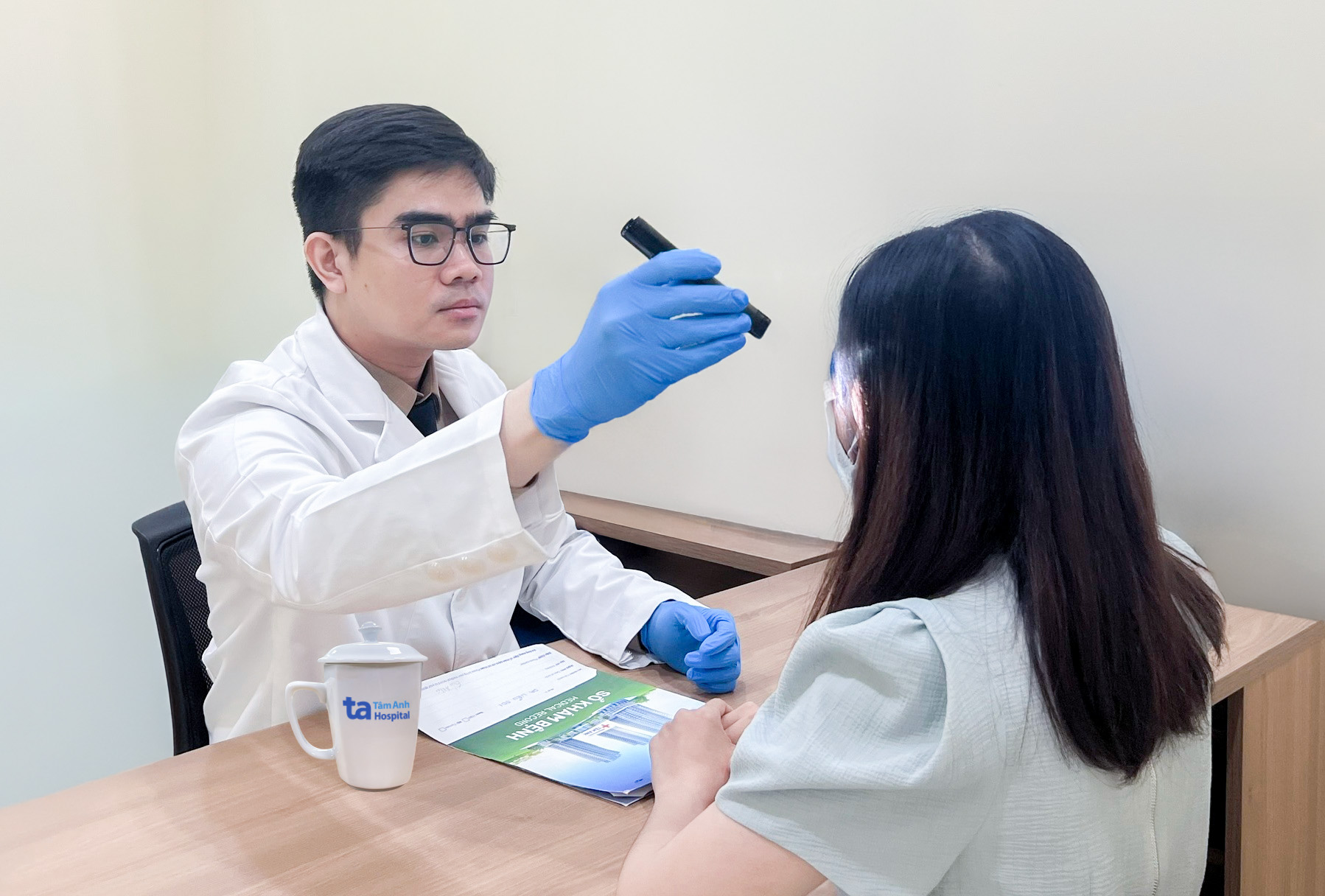Initially attributing her itchy eyes to a cosmetic allergy, Ha experienced persistent itching, particularly at night, accompanied by slight swelling in the mornings. Dr. Pham Huy Vu Tung, from the High-Tech Eye Center at Tam Anh General Clinic in District 7, examined Ha's eyes under a microscope. He discovered dozens of pubic lice (Pthirus pubis), measuring 1-1.2 mm, living on her eyelashes, along with numerous eggs attached to the lash hairs.
"Lice on eyelashes can be easily mistaken for blepharitis, eye allergies, or common conjunctivitis," Dr. Tung explained, adding that without a thorough microscopic examination, the diagnosis could be easily missed.
Dr. Huynh Cong Tri, from the Dermatology - Skin Aesthetics Department at Tam Anh General Hospital in Ho Chi Minh City, examined Ha's skin and conducted tests for lice in other potential areas such as armpits and eyebrows, but found no other infestations.
Doctors prescribed Ha an eye ointment containing an ingredient to suffocate the parasites, along with a topical cream for 7-10 days. She was also advised to maintain meticulous personal hygiene, wash all bedding and towels, and expose them to sunlight. To prevent cross-contamination, Ha was instructed to avoid sharing personal items with family members. Doctors also recommended that Ha's family members with similar symptoms seek medical attention to prevent further spread and recurrence.
After two weeks of treatment, Ha's blepharitis subsided significantly, and the lice and eggs were eliminated from her eyelashes.
 |
Dr. Tri examines Ha's eyes. Photo: Tam Anh General Clinic, District 7 |
Dr. Tri examines Ha's eyes. Photo: Tam Anh General Clinic, District 7
Pubic lice typically infest the pubic area but can spread to other hairy regions like eyelashes, eyebrows, chest, and armpits, especially through close contact, sharing towels or bedding, or poor hygiene. Untreated infestations can cause intense itching, leading to scratching, skin abrasions, and potential bacterial infections.
Dr. Tri advises seeking medical attention promptly if you experience persistent eye itching, irritation, excessive discharge, redness and swelling of the eyelids, or notice small dots clinging to body hair. Avoid self-treating with eye drops or creams, which can mask symptoms, complicate diagnosis, and increase the risk of spreading the infestation if caused by parasites like pubic lice. Early detection and treatment ensure quick control of the condition, prevent complications, and limit transmission to others.
Minh Huong
*The patient's name has been changed.












